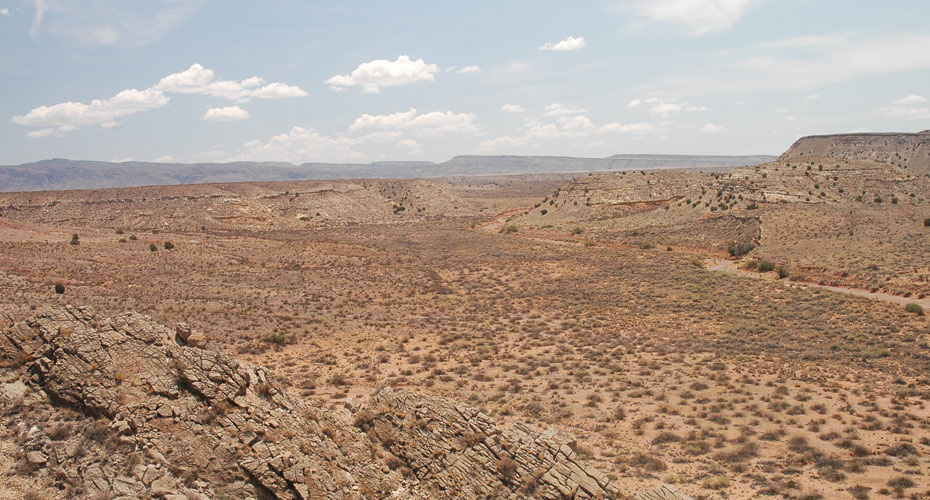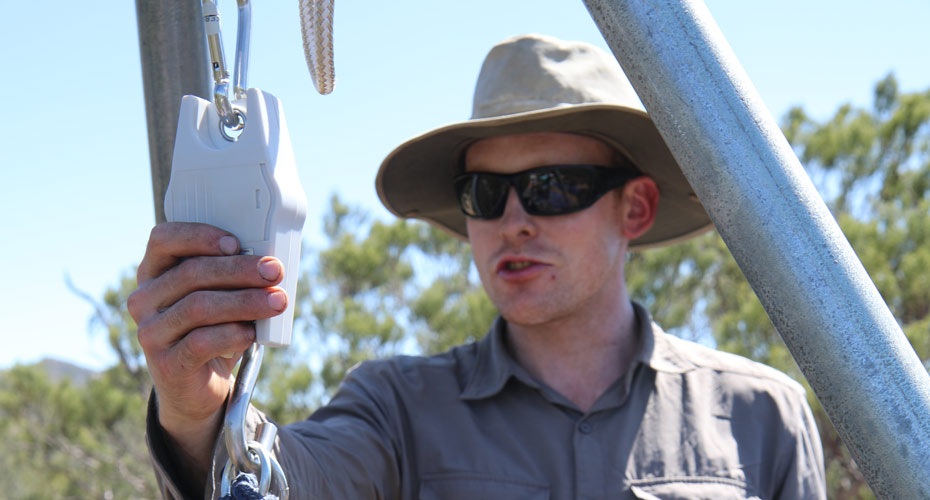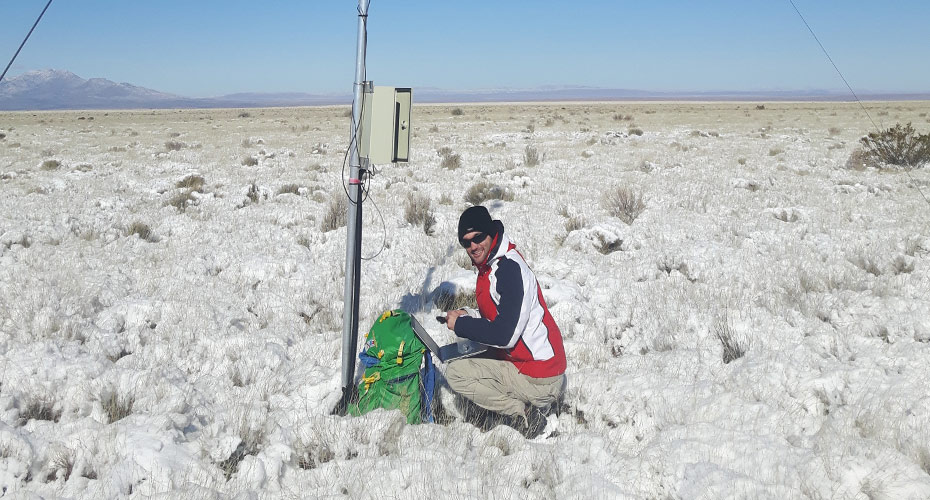DRIVING-C
DRIVING-C
DRIVING-C
Do dryland ecosystems control interannual variability and trends in global carbon fluxes?
State of the art global models increasingly point at the role of dryland ecosystems in controlling interannual variation and long-term trends in the land carbon sink, yet these models have significant limitations in these water-limited ecosystems. This project aims to improve empirical understanding of carbon storage and fluxes in dryland ecosystems, in order to improve these dynamic global vegetation models.
The DRIVING-C project combines remote sensing at fine and coarse scales, eddy covariance techniques and modelling with dynamics global vegetation models, focusing mainly on field sites in the southwestern USA. To investigate spatial variations in gaseous carbon fluxes and field-test new, ‘low cost’, alternative technologies, we have deployed eight eddy covariance towers across semi-arid shrubland and grassland sites. In conjunction with these gas flux observations, we are using drone photogrammetry techniques to monitor changes in vegetation biomass through time across the spatial footprint observed by these eddy covariance instruments. We are investigating the capacity of coarse-scale (satellite obtained) remote sensing observations to characterise changes in carbon storage. This knowledge will be used to parameterise and evaluate dynamic global vegetation models (DGVMs), particularly the Joint UK Land Environment Simulator (JULES), to help us to learn more about the strengths and weaknesses of existing model structures.
Team members
- Prof. Richard Brazier (PI)
- Dr Andrew Cunliffe (R-CI) (main contact)
- Assoc. Prof. Karen Anderson (CI)
- Assoc. Prof. Tim Hill (CI)
- Prof. Stephen Sitch (CI)
- Dr Fabio Boschetti (RT)
Funding
This research is funded by the Natural Environment Research Council (NERC) (NE/R00062X/1).
Project partners
We are collaborating with a wide range of project partners, including Prof. Marcy Litvak and Cameron McIntire from the University of New Mexico, Prof. Walt Oechel and Breahna Gillespie from San Diego State University, and Dr Rob Clement.




